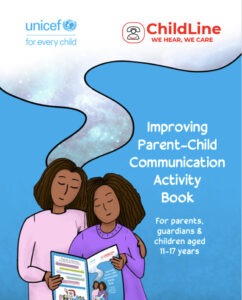What is your inner voice like?
Does it judge you even when others don’t? Does it criticise everything you do? Does it tell you you’re not good enough? Does it try to convince you that other people secretly don’t like you? Though it seems like it isn’t a big deal, some of the most powerful words are the words we say to ourselves. What you say to yourself can empower you to fulfil your dreams or crush your spirits before you even start. It can mean the difference between peace of mind and serious mental health struggles over time.
Don’t we all sometimes need to hear the brutally honest truth?
Negative self-talk often pretends to be realistic advice meant to get you back on track. It can feel like our own way of learning from mistakes and doing better. However, like punishing a child for wrongdoing, it isn’t guaranteed to teach you right from wrong. Telling yourself “I did so badly, I can’t do this” or “No one cares about what I think” doesn’t teach you how to be or do better. Instead, it may teach you that you are wrong, that you’re incompetent, uninteresting, or untalented. Over time, these thoughts can gradually manifest into poor self-esteem, low confidence in your skills, and/or long-term mental health issues.
How can you recognize negative self-talk?
- Personalizing (“It’s not them, it’s definitely you”): If something bad happens or something doesn’t work out the way you planned, you automatically and sometimes unconsciously assume that it’s your fault and/or your responsibility to fix.
- Filtering: You magnify the negative parts of a situation and use them to criticise yourself. E.g. You got a B- in your exam, but you focus on how far you are from an A+ instead of the fact that you improved from the last time.
- Catastrophizing: You automatically assume the worst. For example, you take a 5-minute detour on your way to work and immediately think you’ll be in trouble for being late.
- Polarizing: You view things as either good or bad; there’s no middle ground. You may feel that if you aren’t perfect then you’re a failure. If that exam score isn’t A+, you’re a bad student and you don’t work hard enough.
How can you learn to be kinder to yourself?
- Notice when you’re being too critical. Always ask yourself, “Would I say this to someone I love and care for?”
- Remember that how we feel isn’t always true. At the moment you may feel embarrassed, ashamed, or disappointed about something. That doesn’t necessarily mean that you did something wrong.
- Put a limit on your negativity. If you can’t nip it in the bud, limit negative thoughts to specific times of the day. Outside of that, try to be more neutral. Instead of thinking, “This is impossible”, you can try, “This is a challenge for me.”
- Think long-term. Is it going to matter as much tomorrow? A week from now? A year from now? If not, try to be easier on yourself and remember that the situation you’re in will not last forever.
Your inner voice can sometimes act as your portable bully; a loud reminder of your every mistake and embarrassing moment. However, that voice doesn’t need to stop you from improving or finding the happiness and confidence you deserve. Remember who you want to be and take the opportunity every day to talk to yourself the way you would talk to that person.
[/et_pb_text][/et_pb_column][/et_pb_row][/et_pb_section]






